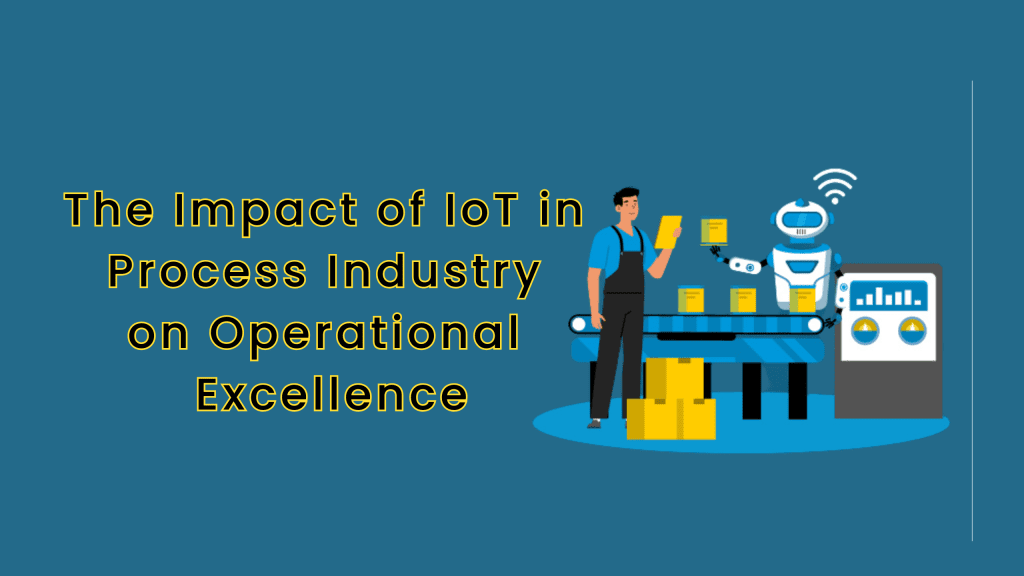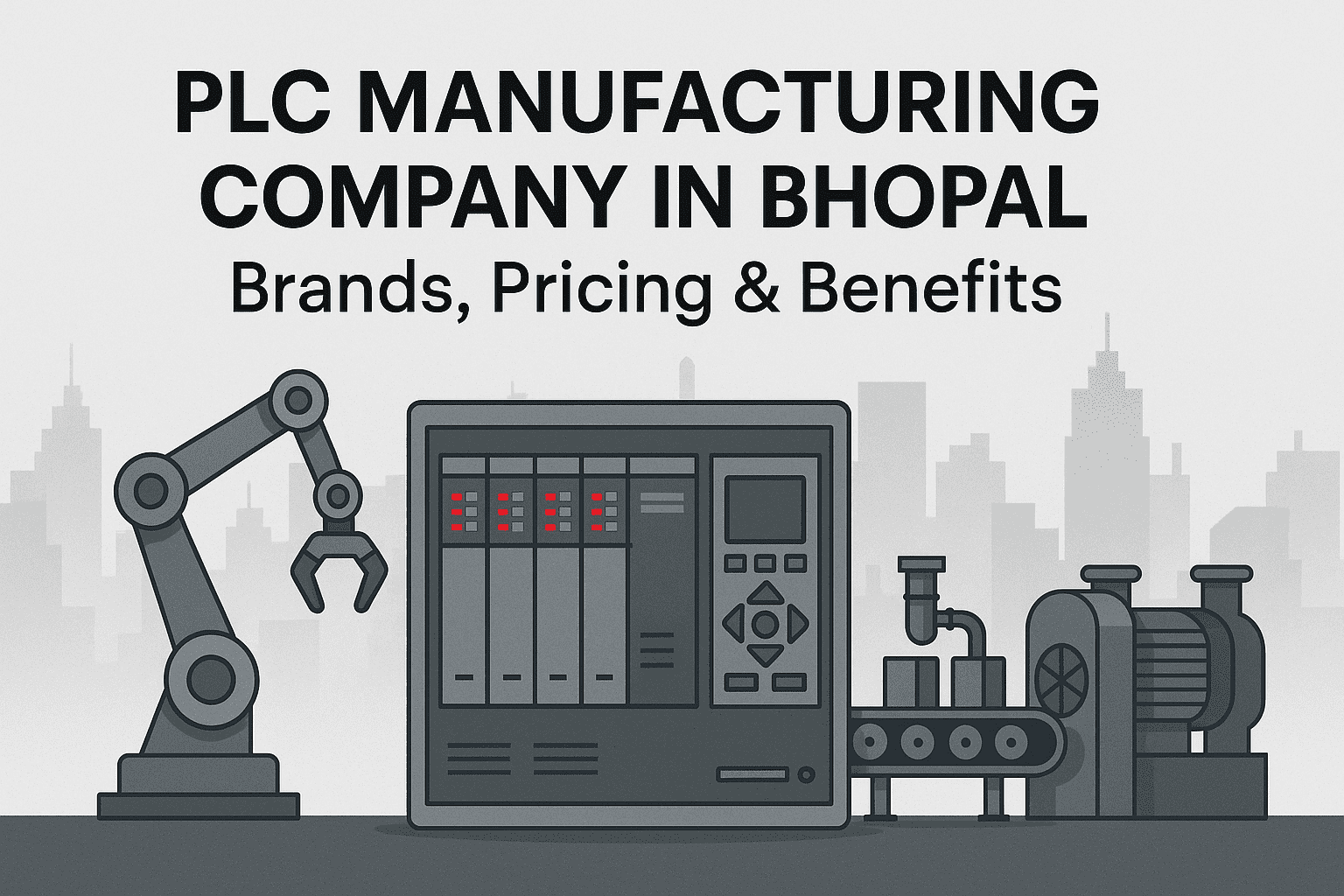The process industry has always relied on automation to improve efficiency, reduce costs, and enhance product quality. However, with the rise of Internet of Things (IoT), the industry is experiencing a transformation like never before. By integrating IoT technologies, businesses can achieve real-time monitoring, predictive maintenance, and enhanced decision-making, all of which contribute to operational excellence.
Industries such as manufacturing, oil and gas, chemicals, food processing, and pharmaceuticals are leveraging IoT to streamline operations. Smart sensors, cloud computing, and AI-powered analytics are making it possible to optimize production lines, reduce downtime, and improve overall efficiency. In this blog, we will explore how IoT is making an impact on the process industry and shaping the future of industrial automation.
How IoT is Transforming the Process Industry
1. Real-Time Monitoring and Data Analytics
IoT-enabled sensors are being used to monitor temperature, pressure, humidity, and machine performance in industrial environments. With real-time data collection, businesses can gain deeper insights into their processes and detect inefficiencies before they escalate.
For example, in the chemical industry, maintaining precise chemical compositions is critical. IoT sensors track and adjust chemical levels automatically, ensuring consistency in production while reducing waste and errors.
By continuously collecting and analyzing data, businesses can improve process control, minimize variability, and enhance product quality without manual intervention.
2. Predictive Maintenance for Reduced Downtime
Unplanned downtime can cost businesses thousands, if not millions, of dollars in lost production. Traditional maintenance strategies often rely on scheduled servicing, which may either be too early or too late. IoT changes this approach by enabling predictive maintenance, where equipment is monitored continuously for signs of wear and tear.
IoT sensors track vibration, heat, and pressure levels in machinery. If a machine starts showing signs of failure, the system triggers an alert, allowing maintenance teams to fix the issue before it escalates.
For example, in an oil refinery, pumps and compressors are essential for operations. An IoT-powered system can predict potential failures and recommend servicing at the right time, reducing unplanned downtime and improving efficiency.
3. Enhancing Supply Chain Visibility
One of the biggest challenges in the process industry is managing supply chains effectively. IoT is making it easier by providing real-time tracking of raw materials, finished products, and logistics.
RFID tags, GPS tracking, and smart inventory systems enable manufacturers to keep track of shipments, monitor storage conditions, and optimize transportation routes. This level of visibility helps prevent delays, reduce losses, and ensure product quality remains intact during transit.
In the pharmaceutical industry, for example, temperature-sensitive drugs require constant monitoring during storage and transportation. IoT sensors can detect fluctuations and trigger alerts if conditions deviate from the required standards, ensuring compliance with safety regulations.
4. Energy Optimization and Sustainability
Energy consumption is a major cost factor in the process industry. IoT solutions help businesses optimize energy usage by tracking consumption patterns and identifying areas of inefficiency.
IoT-powered smart grids adjust power distribution based on real-time demand, ensuring that energy is used efficiently. HVAC systems in food processing plants, for example, can automatically adjust cooling and heating based on environmental conditions, reducing unnecessary energy expenditure.
By integrating IoT into energy management systems, industries can lower operational costs while reducing their carbon footprint, making processes more sustainable.
5. Improving Workplace Safety and Compliance
The process industry often involves working in hazardous environments, making worker safety a top priority. IoT-powered safety systems are now being used to monitor environmental conditions, detect risks, and enforce compliance standards.
For example, in an oil refinery, IoT-enabled gas sensors continuously monitor air quality and detect leaks before they become dangerous. If toxic gases are detected, an automatic shutdown can be triggered to prevent accidents.
Additionally, wearable IoT devices track workers’ health parameters, ensuring they are not exposed to extreme conditions for prolonged periods. This enhances workplace safety while improving compliance with industry regulations.
The Benefits of IoT in Process Industry
- Improved Efficiency – Real-time data monitoring allows businesses to optimize processes and reduce manual intervention.
- Reduced Downtime – Predictive maintenance ensures machines are serviced only when needed, preventing unexpected failures.
- Lower Operational Costs – IoT-driven automation reduces waste, optimizes resource usage, and cuts down on energy consumption.
- Enhanced Product Quality – Continuous monitoring and AI-driven insights ensure consistency and high standards in production.
- Better Decision-Making – IoT analytics provide actionable insights that help businesses make data-driven decisions.
- Greater Safety and Compliance – Automated monitoring systems help prevent accidents and ensure regulatory compliance.
The Future of IoT in the Process Industry
As IoT continues to evolve, emerging technologies like AI, 5G, and edge computing will further enhance its impact on the process industry. Faster data transmission, improved machine learning algorithms, and decentralized processing will enable real-time decision-making with minimal latency.
Digital twins, another emerging trend, will allow industries to create virtual simulations of real-world processes, enabling testing and optimization before implementing changes on the factory floor.
Companies that embrace IoT innovations will not only improve their operational efficiency but also gain a competitive advantage in an increasingly automated world.
Conclusion
The impact of IoT in process industry is undeniable. From real-time monitoring and predictive maintenance to energy optimization and supply chain visibility, IoT is driving a new era of industrial automation. Businesses that adopt IoT-driven solutions can improve efficiency, reduce costs, and enhance workplace safety while ensuring compliance with industry regulations.
At Aknitech Automation, we specialize in IoT solutions tailored to the needs of the process industry. Our smart automation systems help businesses achieve seamless integration, real-time insights, and enhanced operational control.
Want to implement IoT in your industrial processes? Contact us today to explore innovative automation solutions.







